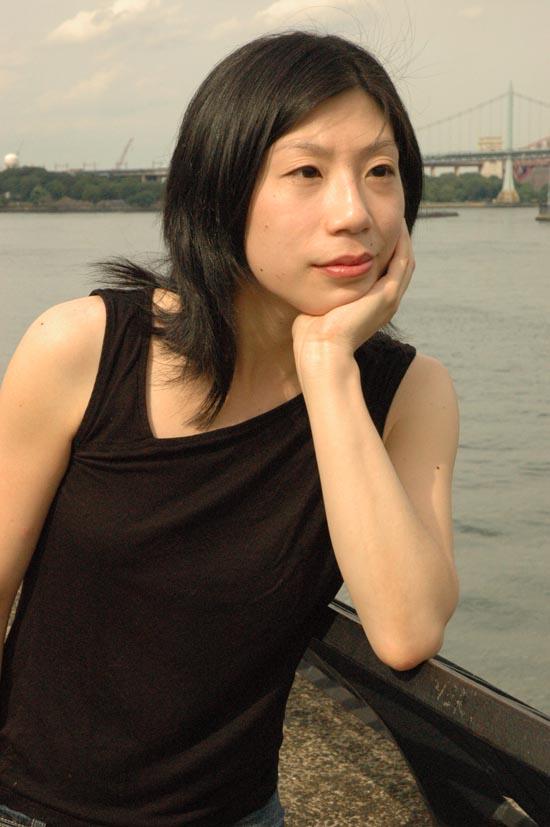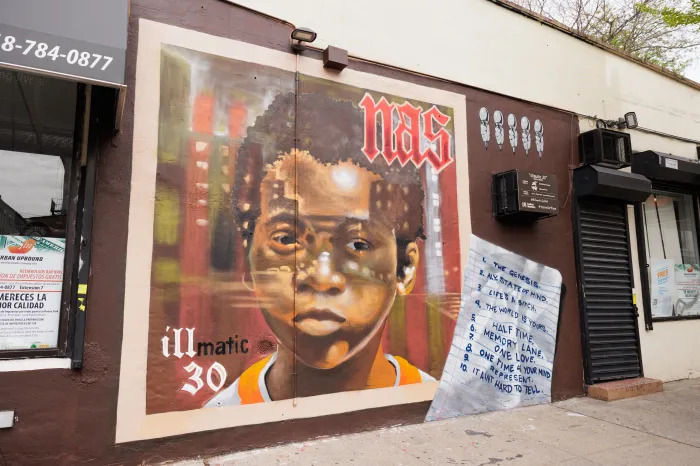By Erin Walsh
In her fiction and in her life, Astoria author Wendy Lee has scripted her own unique variation of the immigrant’s story with a quintessentially New York angle.
Although the American−born, California−bred graduate of Stanford University and New York University’s Creative Writing Program may seem like an unlikely immigrant, the 33−year−old Lee said that she felt like a newcomer when she moved to the city shortly before Sept. 11 after spending three years in China, the last two of which she taught English.
“I kind of felt like an immigrant,” she said, “being reintroduced to the U.S. after living in China, feeling disoriented, having some relatives here, a little bit of culture shock.”
These experiences form the basis of Lee’s first novel, “Happy Family,” a deft and engaging tale of Hua Wu, who moves to New York’s Chinatown from Fuzhou, China, to work in a restaurant and make a better life for herself after several failed attempts in China. Once there, she befriends Jane Templeton, a lonely art curator trapped in a strained marriage, and her adopted Chinese daughter Lily, who reminds the orphaned Hua of herself.
The book, published last year by Black Cat, an imprint of Groveâ„Atlantic, has many commonalities to Lee’s own experiences in familiarizing herself to a strange city, seen through Hua’s eyes.
“For me, the book is trying to find a connection with other people,” she said.
Literature figures prominently in Lee’s life, whether in her career as an assistant editor for HarperCollins Publishers or in her work as a novelist.
As the daughter of immigrants from China and Taiwan, Lee wanted to write an “immigrant story,” but with a nontraditional take, for her first novel. Upon returning to the States after living abroad, she noticed that many New York couples were adopting children from China. She pondered what effect this had on adopted children trying to reconcile their native heritage with being reared by American parents.
Drawing upon both anecdotal research and memoirs written on the subject, she crafted an affecting tale that examines the lengths that people sometimes go to in order to forge bonds with others and how one’s cultural heritage determines other people’s perceptions.
“The whole thing is, do you see that person for their culture first, or as a person?” said Lee, in reference to the role that cultural heritage plays in the book.
Living in Queens, the nation’s most diverse county, allows Lee to interact with people from all backgrounds that she might not otherwise.
“Sometimes, you feel that you’re in New York, but that you’re in the rest of the world as well,” she said.
Lee is currently working on a second novel that examines what it means to be a second generation immigrant in America, which she hopes to complete by summer’s end. The book, which she started last fall during a stay at The McDowell Colony in New Hampshire, the nation’s oldest artists’ colony, centers on three Asian sisters who decide not to have children for various reasons and the implications of this decision for their parents, who presumably emigrated to afford future generations better opportunities than they had.
Despite being a publishing industry insider, Lee said that she still had the same unrealistic expectations and picayune concerns that she often witnesses in dealing with first−time writers.
“I found that I still had the same paranoid questions that a lot of authors had,” she said. “If there was a character on a TV show with the same name (as a character in the novel), should I change it?”
Working a full−time job that requires considerable focus sometimes makes it difficult to write in her spare time, Lee admits, but hearing from people who were touched by her book and seeing her writing continuously improve make the endeavor worth the effort.
For Lee, the biggest payoff from writing “Happy Family” was “knowing that one person who you don’t know read [the book], and that it touched a nerve.”































